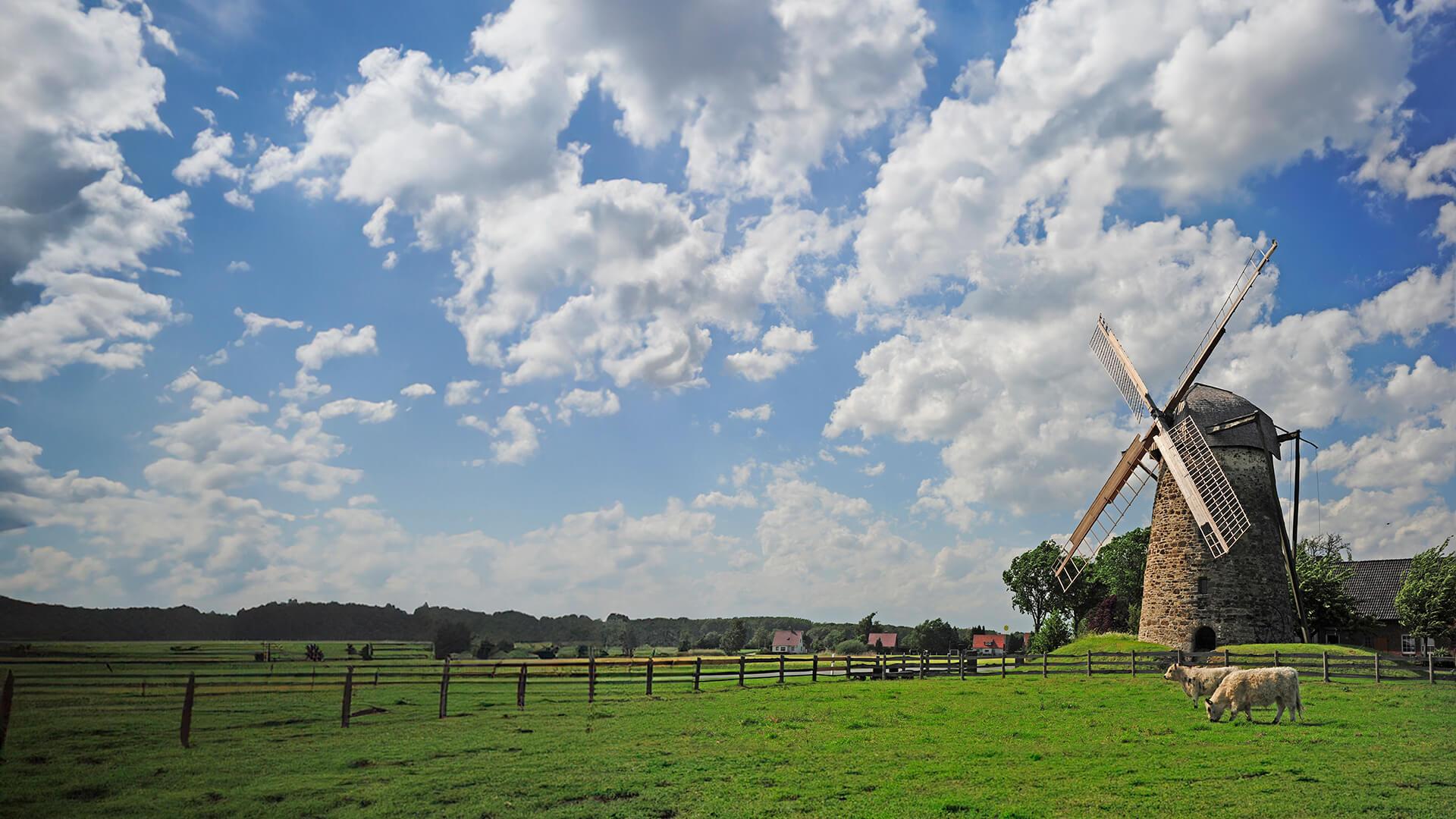


Minden-Lübbecke
Our daily bread ...
... does not come from this bakery but from an artisan bakery or from a bread factory via a supermarket. There are "only" half a dozen hobby bakers here, who ensure fragrant breads and freshly baked cakes every grinding and baking day. On Saturday, they preheat the oven and prepare the mixes; and on baking day, they are in the bakery before the first rooster crows and produce the regular assortment:
- Butter cake with real German butter
- Seasonal fruit cake (rhubarb, cherries, apple or plums)
- soft rolls with and without raisins
- Spelt bread based on yeast and sourdough
- Stuten with and without raisins
The recipes come from Oskar Weiherich, one of the founding fathers of our mill group. On this basis, the craft is upheld, quality guaranteed and also demonstrated to visitors if required. The Bockwindmühle Wehe is one of the very few mills where this is still possible. This craft can not only be enjoyed, but also visited if you are interested. Otherwise we buy our bread and cake - like most people in Wehe - opposite the mill at the Wiegmann country market. This is supplied by master baker Wolfram Kölling from the neighboring village of Pr. Ströhen, now the only "warm" bakery in the Rahden area.

Minden-Lübbecke
Our partner bakery Kölling
When Wolfram Kölling's great-uncle founded the business in 1936 and until the 1960s, there were three other bakeries in Pr. Ströhen alone, Ludewig and Schwettmann baked in Wehe and there were two or three bakeries in every village. Almost all of them also ran a grocery shop and/or an inn, and sometimes a small farm. There were few employees outside the family.
Today, ten people work in Kölling's bakery - from 2 a.m. at night - and around 30 others take care of sales in four branches and at several points of sale. Nevertheless, "Kölling" is now a rather small business that has survived the almost complete extinction of village bakeries. In addition to the price pressure from bread factories, a lack of young talent and difficult business succession played their part in this. the only way to "survive" was through family involvement, flexibility and good craftsmanship. Today, brown bread is considered Kölling's special trademark. The mixed wheat bread also enjoys a good reputation, and in recent years there has also been an increasing demand for spelt bread and rolls.
With his son Thorsten ready to take over, Wolfram Kölling is optimistic about the future. And he emphasizes that virtually nothing is thrown away. What is left over in the store is either reused or donated to the food bank. The baker also confidently points out that he needs a decent price for good goods - and that customers accept this.